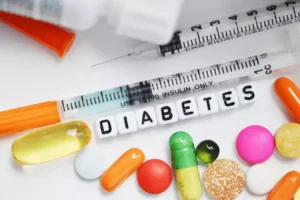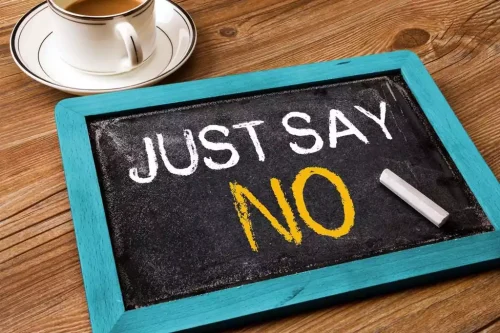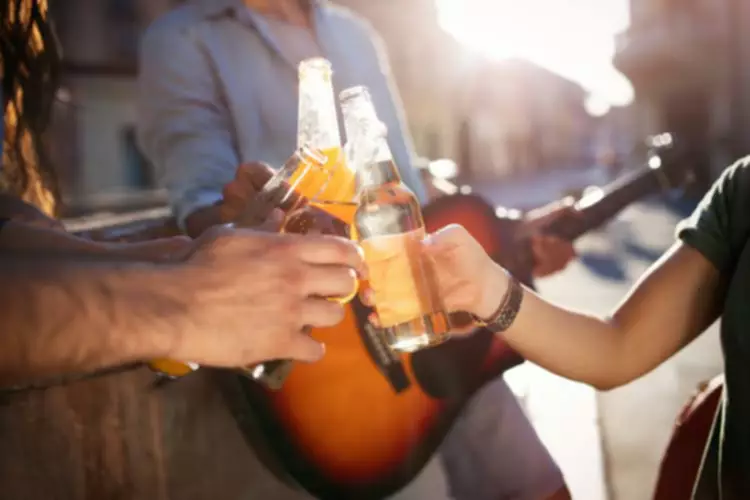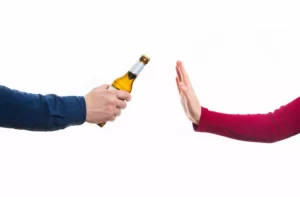
It will hurt (pretty bad at first), but in time you will come to see it as the gift it is—and you won’t waste time getting to know the wrong person. Ask any sober person whether they want to go to a cocktail party or stay in with a pack of La Croix, The Crown, and a bathrobe. I’d bet nine out of 10 of us won’t even answer, https://ecosoberhouse.com/ and we’ll just laugh because it’s such a ridiculous question. Sobriety doesn’t necessarily turn you into Liz Lemon, but it can give you the clarity to understand that you’ve been Liz Lemon your whole life. Before I quit drinking, I never really used to care about dividing the bill down the middle with a group.
- Lastly, whether enrolled in a formal treatment program or you’re still contemplating sobriety, you may benefit from mutual support groups as a part of your lifelong recovery process.
- “Most symptoms are gone except constipation and occasional shakes. Been sleeping really good.”
- Acknowledging and celebrating the hard work of recovery is helpful for keeping you motivated and reminding you why you took this brave step toward sobriety in the first place.
- Even after being sober for years, the potential for an alcohol relapse is always possible.
- “I still feel really anxious and panicky and confused sometimes, especially in public.”
Thinking Clearly, Fewer Cravings
When reaching out to family and friends for support, it’s important to choose wisely. If your circle has grown to include individuals who enable or trigger you to drink or misuse substances, they probably aren’t the best people to ask for help since they may prevent you from breaking the cycle of addiction. In fact, your journey to sobriety will likely involve strengthening some relationships and purging others. You may find yourself leaning on your trusted support system a lot and breaking ties with those who do not aid you in your recovery. Steve Kobashigawa, a marriage and family therapist based in L.A., said that when you feel a craving come on, do what you need to do to get into a more positive headspace. Sometimes avoiding alcohol can seem impossible, but staying sober gets “exponentially easier” over time, he said.
Month 2-3: Positive Effects Are A Sign To Keep Going

By taking proactive steps, such as staying mindful of triggers, using coping strategies, and seeking help when needed, individuals can stay on track with their relapse prevention plan and enjoy a fulfilling sober life. Developing the skills to navigate social situations without alcohol is essential for long-term recovery, as it offers a sense of understanding and respect for the individual’s commitment to staying sober and avoiding drinking alcohol. With the right support and strategies in place, individuals can confidently participate in social events without compromising their sobriety and can stay sober even without AA, for example. If you don’t have a family or strong social circle to return to post formal treatment, a personalized plan may include interpersonal therapy, which can help you build a healthy social network.
Practice Healthy Living
By doing so, you may even identify triggers that cause you to drink—for example, certain social situations, stress from work, or even boredom. Take some time to decide which days are OK to have a drink and which days are off-limits. And if today is as far ahead as you’re ready to look, that’s okay too. You can visit the Monument Community to hear from others about their experiences, and attend therapist-moderated support groups to check in with yourself and others. Second, savor the positive emotions and know that with the right treatment, dedication, and self-care, you will find a sustainable path complete with authentic joy.
Identify Your Personal Triggers

If your symptoms persist for a long time, you may have post-acute withdrawal syndrome (PAWS). This protracted withdrawal can lead to lingering withdrawal symptoms such as irritability, sleep disruptions, problems concentrating, and urges to use alcohol. If you experience PAWS, your doctor may prescribe gabapentin to help you manage your symptoms.
- If you’re not ready or willing to change those behaviors and thoughts, then treatment cannot do what it’s designed to do.
- Some people may find that wearable devices and smartphone apps can support their recovery from alcohol use disorder.
- Lasting recovery requires lasting effort, but relapse is not failure or weakness; it takes more than willpower to maintain sobriety.
- If people press that response, I’ll either stare at them and hold an uncomfortable silence (this is enjoyable at some point), or just change the subject.
- These are the people who quit drinking, sometimes for a long time, and then go back to social drinking without a problem.
- You have the willpower to say no, and you, therefore, think you have the willpower to stop after one drink.
- Alcohol can also cause an increase in blood pressure, particularly if you are struggling everyday to detoxify yourself.
One study from Substance Abuse showed that women struggling with alcohol misuse and depression, who participated in interpersonal therapy, were able to give up alcohol and maintain sobriety longer than those who didn’t. Not everyone comes from an encouraging and supportive home environment. If your family and or friends aren’t motivating you to seek help for your substance misuse, make an appointment with a medical or addiction treatment professional. These individuals can direct you toward the resources you need for recovery, including the needed services and diagnosis of substance use and any co-occurring mental health disorders. When you are an alcoholic and have achieved sobriety, you are in recovery.
- The thought of relaxing at the firepit in an Adirondack chair with an ice-cold glass of rosé made me salivate, the way my dog does when I pull the lid off the treat jar.
- Financial troubles and problems finding and keeping employment are major triggers for relapse, but it is possible to take baby steps and get your finances in order.
What Is Sobriety, Anyway?
Almost invariably, newcomers in early recovery from addiction report that the first few months were very difficult. Newly sober individuals must adjust to a totally new way of living, and it’s normal to feel overwhelmed. This is also when people experience the most intense cravings and withdrawal symptoms. If you are just starting out on your journey to sobriety, drinking again after sobriety you may be wondering what to expect in the coming weeks and months. Embarking on the journey to sobriety is an incredible accomplishment, but maintaining long-term recovery can be challenging. One of the most significant debates among recovering alcoholics is whether to practice complete abstinence or attempt moderate drinking after being sober.
Measuring Alcohol Consumption: Blood Alcohol Concentration

Acute and Post-Acute Alcohol Withdrawal Symptoms

Leave a Reply